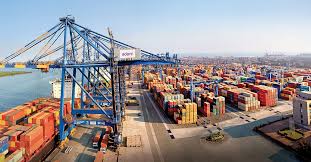
Parliament passed the Major Port Authorities Bill, 2020. The Bill is more compact in comparison to the Major Port Trusts Act, 1963 as the number of sections has been reduced to 76 from 134 by eliminating overlapping and obsolete Sections.
Daily Current Affairs Quiz 2021
The new Bill has proposed a simplified composition of the Board of Port Authority which will comprise of 11 to 13 Members from the present 17 to 19 Members representing various interests.
The role of Tariff Authority for Major Ports (TAMP) has been redefined. Port Authority has now been given powers to fix tariff which will act as a reference tariff for purposes of bidding for PPP projects. PPP operators will be free to fix tariff- based on market conditions.
The Board of Port Authority has been delegated the power to fix the scale of rates for other port services and assets including land.
An Adjudicatory Board has been proposed to be created to carry out the residual function of the erstwhile TAMP for Major Ports, to look into disputes between ports and PPP concessionaires
The Boards of Port Authority have been delegated full powers to enter into contracts, planning and development, fixing of tariff except in national interest, security and emergency arising out of inaction and default. In the present MPT Act, 1963 prior approval of the Central Government was required in 22 instances.
The Board of each Major Port shall be entitled to create specific master plan in respect of any development or infrastructure.
Provisions of CSR & development of infrastructure by Port Authority have been introduced.
Provision has been made for safeguarding the pay & allowances and service conditions including pensionary benefits of the employees of major ports.





